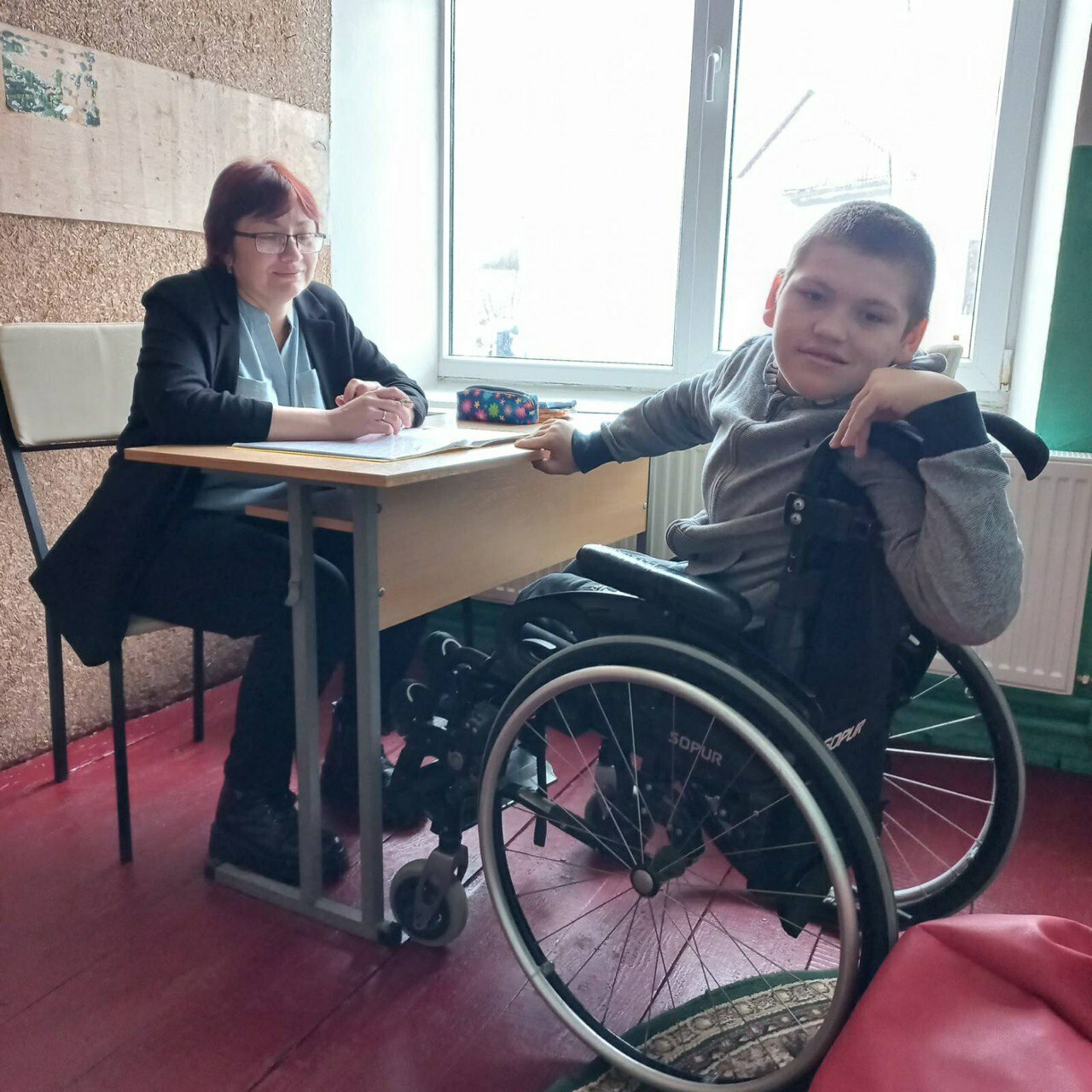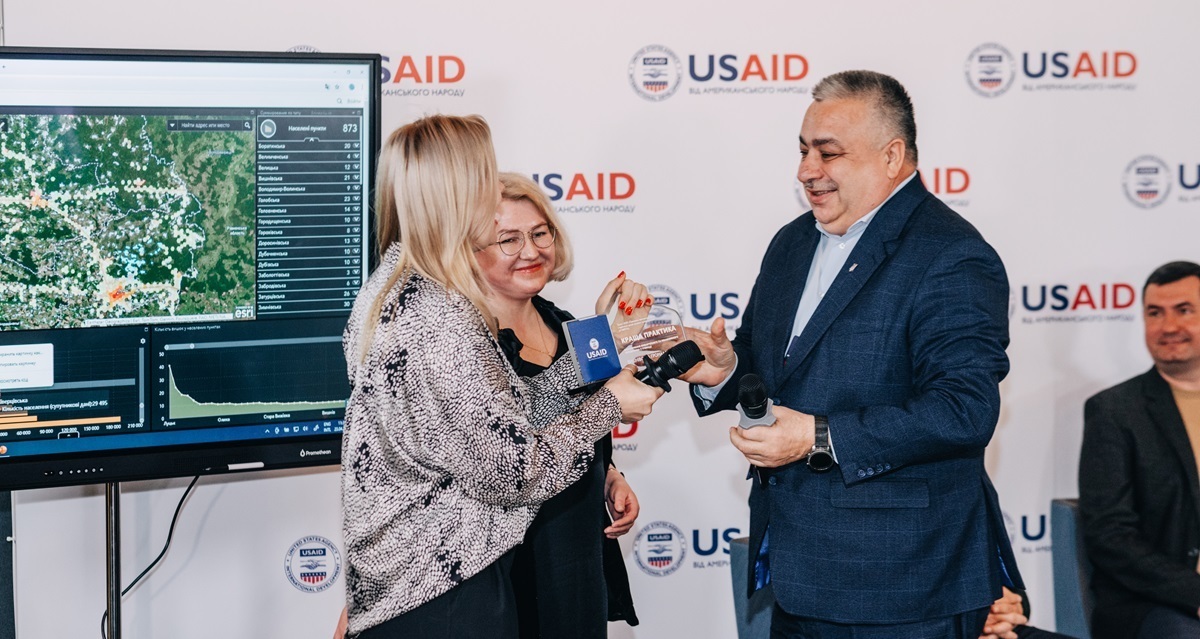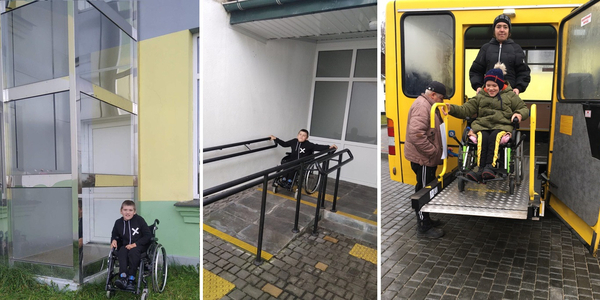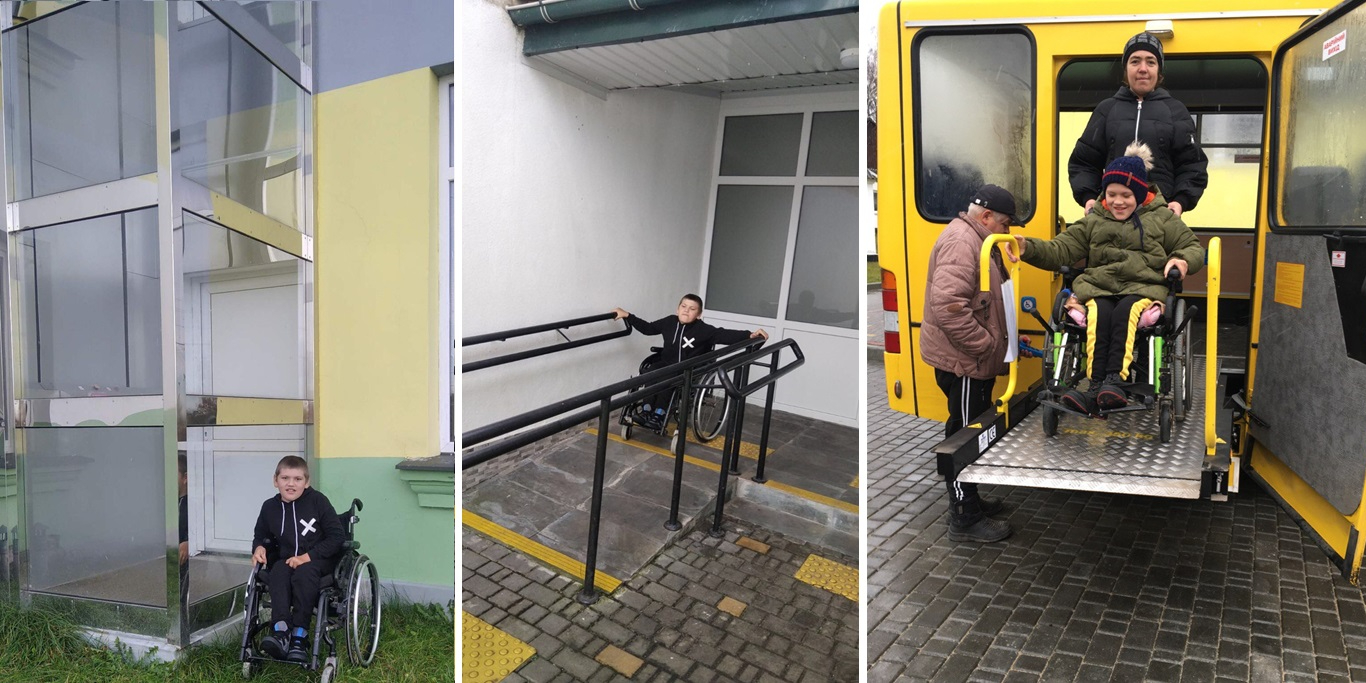Two Schools in Volyn Provide a Barrier-Free Environment for Students
When it comes to educating students with special educational needs, it is crucial to create the necessary learning conditions as soon as possible, as the absence of such conditions could hinder their development. Ivanna Matsyuk, the mother of Andriy, a student with special educational needs, knows this better than anyone. Her son attends the Rymachiv Lyceum of the Vyshniv community in Volyn Oblast.
At the lyceum, Andriy receives the fifth level of support, which is the most complex and requires special equipment. Ivanna Matsyuk explains:
"For my son, the school provides conditions that allow for social adaptation and harmonious development. The lyceum has ramps at the entrance, dining area, and a special platform to access the second floor. The school bus is equipped with a special lifting mechanism. A special desk designed for individuals with musculoskeletal impairments has been purchased for my son. The school facility includes a bathroom with support devices and doors of appropriate width for people with disabilities."
In addition to the equipment, students with special educational needs require a tailored educational process.
"Andriy attends classes in a resource room with a desk for individual sessions, a decompression zone, and equipment for conducting therapeutic physical exercises. The child receives psychological and educational services, participates in corrective developmental sessions, and is supported by psychological and educational guidance," says Ivanna Matsyuk.

An inclusive resource room has also been established at the Mashiv Lyceum of Vyshniv community. Vita Kyrychuk, a teacher assistant working with two children with special educational needs in the seventh grade, reports:
"In our educational institution, we have managed to create comfortable conditions for the education of such students: there is a resource room where teachers conduct corrective developmental sessions, and there is also a comfortable relaxation area. There is a nurse's office, a gym, an assembly hall, and other inclusive facilities."
Addressing the needs of all residents is a priority for the Vyshniv local government bodies. Natalia Sukha, acting head of the humanitarian department of Vyshnivska Council, shares future plans:
"As a result of our joint efforts, we have managed to provide decent conditions for children. We plan to continue creating inclusive spaces, as this is very relevant for the community residents during the war."
The community's experience in providing a barrier-free environment was recognized as the best practice by the USAID HOVERLA Activity, for which Vyshnivska community received an award.


Tags:
education social services best practices education
Область:
Волинська областьГромади:
Вишнівська територіальна громадаSource:
USAID HOVERLA

15 July 2025
Сила двох: співпраця ЦНАП і ДПС як один зі шляхів зміцнення бюджету громади
Сила двох: співпраця ЦНАП і ДПС як один зі...
Ще 2019-го мешканці Мерефи почали питати, чому за паспортом і субсидією можна прийти до ЦНАП, а за карткою платника...
11 July 2025
‘We all don’t want to hold our breath during...
By Mariia Buleiko (Markovska) Before the full-scale invasion, the basement of Chernihiv Gymnasium No. 34 was...
01 July 2025
Як у закладах освіти Чернігівської громади мрії учнів і учениць стали реальністю
Як у закладах освіти Чернігівської громади мрії...
У межах ініціативи «Громадський бюджет на дитячі мрії», що реалізується спільно громадою та...
27 June 2025
Як мрії учнів і учениць Коропської громади стали реальністю
Як мрії учнів і учениць Коропської громади...
У межах ініціативи «Громадський бюджет на дитячі мрії», що реалізується спільно громадою та...